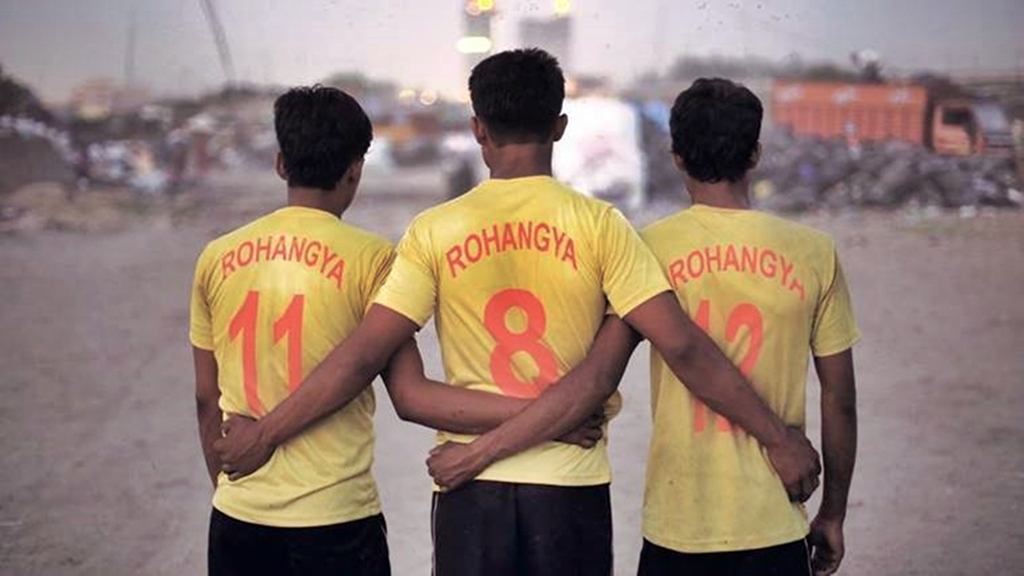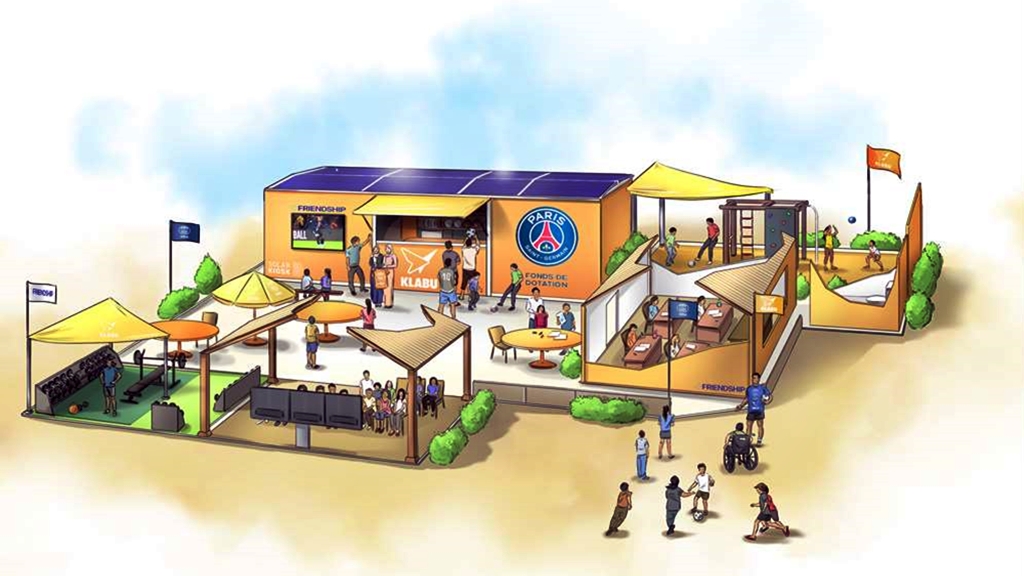
In a Delhi slum, Rohingya team dreams football, debates ‘Cristiano Ronaldo or Lionel Messi?’
- 16/04/2017
- 0
By Andrew Amsan, Indian Express
For a while, they can forget home.
They call themselves the Rohingya Shining Stars. On most nights, after they are done with their daily jobs as autorickshaw drivers, construction labourers, software trainees and IT technicians, they gather under a tent in Shaheen Bagh slum in Delhi’s Jamia Nagar for football nights. Long away from home, as the violence that made them flee Myanmar now haunts them here, the refugees debate a matter that unites football fans across the world: who is better, Ronaldo or Messi?
Riyaz, the captain of the Rohingya Shining Stars and one of the 18-member team’s few Ronaldo fans, set up the football club in 2015, along with fellow refugees. “Back home we all used to play football as kids. We were very good at the game but never got the platform to showcase our skills,” says the midfielder, who is doing a computer course and gives free tuitions to children of the Shaheen Bagh Rohingya refugee camp, housing 70-odd families.
The team, which practises with worn-out footballs and in donated boots, on Sundays at Mela Ground in Chittaranjan Park, 8 km away, initially took part in inter-community competitions. Lately, it has been participating in open tournaments, and will be soon playing against corporate teams such as Google and Accenture at an event in Gurgaon.
Sayidul, a defender, is currently jobless, having lost work after the abattoir he worked at in Aligarh shut down after Uttar Pradesh Chief Minister Yogi Adityanath’s crackdown on illegal slaughterhouses in the state. The 22-year-old, who shows a bruise on his scalp from where the Myanmarese security forces hit him, fears having to do manual labour.
“One of the officers hit me with the butt of his gun,” Sayidul says, talking about the raid on his village in Myanmar six years ago. “They are merciless. They don’t spare you, even if you’re a woman. They don’t let you talk. They can beat you up, detain you and even kill you without a reason.”
Following the raid, Sayidul and family left their cattle and farm and joined the tens of thousands of Rohingya Muslims, an ethnic group treated as outcasts in their Buddhist-majority home country, to flee to neighbouring countries. Sayidul says he paid a hefty amount to an agent to reach Kolkata via Bangladesh, and later moved to northern India in search of a livelihood.
The tall Mohammed Younis, also a defender, is the oldest player in the squad at 28. His teammates speak very highly of his ‘bullet kicks’ and his muscular physique. Younis says that is not a result of pumping iron at the gym but of eight hours of construction work, six days a week.
“I lift heavy cement slabs on my shoulders every day. When I return home, my body hurts all over. But I really look forward to Sunday when I unwind myself playing football,” says Younis. “I wouldn’t say I am very smart, but when I hit the ground, my mind works really fast.”
Arfat Hussain, the striker, is also a construction labourer, earning Rs 350 for eight hours of work. However, he hasn’t found any work in the past few days, and is worried. “We have to pay bribes to the cops as well. If not, they send us home.”
Eventually, they all hope to return, but not if conditions remain as they do. Riyaz’s eyes get moist each time he talks about Myanmar. His house in Maungdaw area of Rakhine state, one of the worst-affected regions of the country, was burnt down in the most recent spate of violence, in October. Two of his siblings are missing since the incident. “We have no idea what happened to them. They have disappeared,” he says.
Some of Sayidul’s relatives are still back in Myanmar. He fears for their lives and wishes to bring them here, but “can’t afford to pay the agents”.
There is also heightened anxiety among the community after reports that the Indian government may deport them back to Myanmar. There are around 14,000 registered Rohingyas in India.
Says Riyaz, “I would request the Indian government to either jail us for life or round us up and shoot us. If we go back, it’s certain we will be persecuted and killed. There is no future for us and our children in Myanmar. When we first came to India, we realised what love, unity and compassion was. What law and order was. We don’t want to go back to a country where armed forces snatch children being nursed by their mothers and throw them into the fire.”
Amidst the uncertainty, football is the only thing that keeps them going.
Hussain, who has picked up Hindi, tries to describe what they feel about the game. “Football bhi ek nasha hai. Some people are hooked to cigarettes but I’m hooked to this sport. I can’t explain how I feel when I score a goal,” he says.
On Tuesday night, as they gather at his tent, the conversation veers around to major leagues, and Barcelona’s Lionel Messi and Real Madrid’s Cristiano Ronaldo. “We know Riyaz is a Ronaldo fan,” Hussain says with a disapproving smile, his gaze on the TV screen showing a Barcelona replay.
For a while, they can forget home.







